At CES 2022, there is a small release that many of our readers will be interested in, the Netgear MS108EUP 2.5GbE PoE+/ POE++ switch. If you are deploying WiFi 6 or WiFi 6E access points these days, you are very likely to find 2.5GbE network ports as uplinks. While WiFi has gotten faster, it also uses more power, especially with multiple radios. As a result, we often have readers comment about needing 2.5GbE PoE+ or PoE++ switches. You can read about the key differences of PoE vs PoE+ vs PoE++ switches via a STH guide. That is where the MS108EUP comes in.
Netgear MS108EUP 8-port Switch Brings 2.5GbE and 60W PoE
The Netgear MS108EUP is an 8-port 2.5GbE switch that can also operate at lower speeds like 1GbE. Still, given the pricing, we suspect most will be buying this for its 2.5GbE speeds.
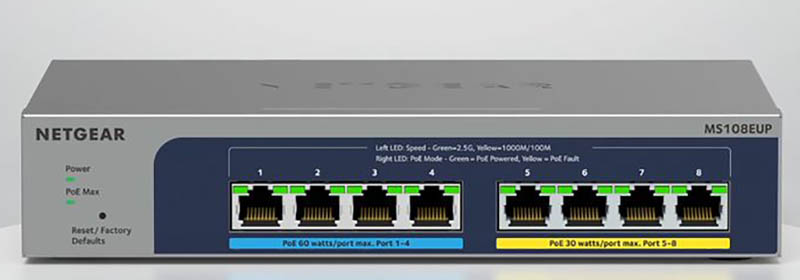
With the eight ports, four are 30W PoE+ and four are 60W PoE++. Netgear’s term for the latter is “Ultra60”. Among the eight ports there is a combined 230W PoE budget. That means that not every PoE++ port can be used at its full 60W, not even including the PoE+ ports. The total port capacity would need to be 30W x 4-ports + 60W x 4-ports = 360W to make every port run at full capacity. As a result, there is quite a bit of PoE spec overprovisioning or PoE oversubscription in this switch.
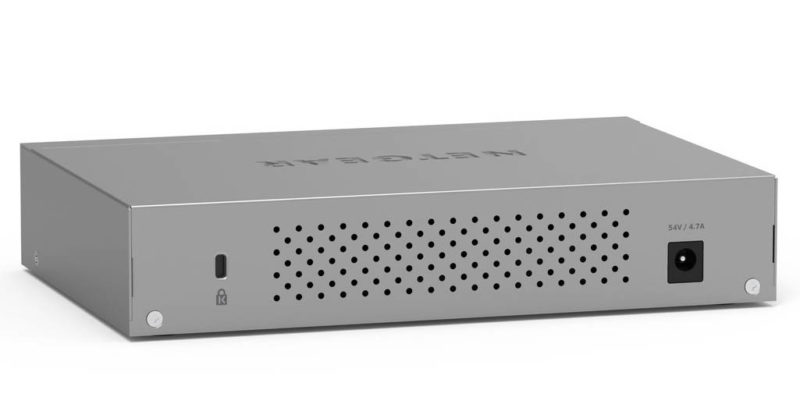
One of the other major features is that this is a fan-less design. No fan means the primary moving part in a switch is not present making it both silent as well as likely increasing the reliability of the switch. I think many of our readers have a Netgear fanless switch stashed away somewhere that is running yet has been forgotten.
Management is perhaps a positive here. This is a managed switch but is a “Plus” managed switch, not an Insight managed switch. Insight is great, but the cost of Insight for lower-end devices is too much for many home/ SMB users that rarely configure networks. This is not a high-end switch by any means; it only supports features like 64 VLANs.
It is based on the Realtek RTL9303 switch chip like many other 2.5GbE switches we have reviewed.
Final Words
List pricing on this is somewhere in the $440 range. That feels a bit expensive for adding PoE to a 2.5GbE switch. If we compare this to the TRENDnet TEG-S380 8-port 2.5GbE switch we reviewed adding some management plus PoE comes at a price of over $1/W of PoE capacity. Let us know if you want to see a review of this unit. I have been doing many higher-end switch reviews, and have at least two more 25GbE+ switch reviews I am doing in Q1, but I know this is a segment that our readers want solutions in.
For real-time pricing, we will also have an Amazon link that will refresh with real-time Amazon pricing below. Disclosure, this is an affiliate link widget so we may earn a commission, but it is the easiest way to get refreshed pricing.

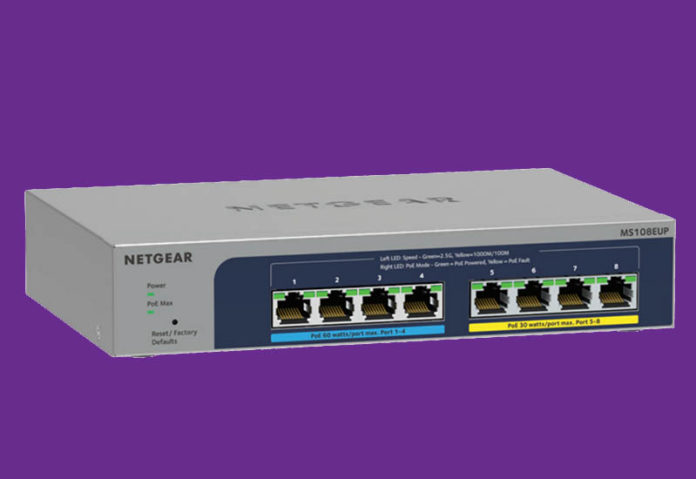
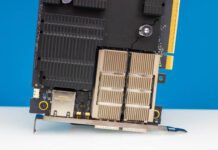
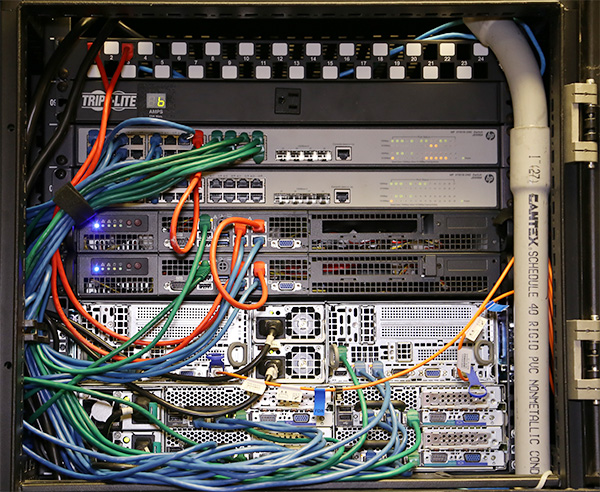
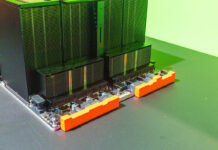
I’d like to see more reviews in the 200-600USD segment. Both non-poe and poe.
I’ve yet to find a really attractive device that offers a nice price/feature ratio. Netgear seems to overcomplicate their multi-gig segment again. I think next-gen edge switches should offer at least simple management and min. one 10G/sfp+ port.
Anything I’ve found so far seems just not attractive enough when comparing to larger devices.
There’s a 8x10G + 4x 10G/sfp+ combo mikrotik switch for 600usd. No poe and not silent though. This seems hard to beat by all the smaller devices.
I disagree with the use of this sentence:
“As a result, there is quite a bit of PoE overprovisioning in this switch.”
This switch is a prime example of PoE “OVER-subscription”.
In other words, the potential demand of all ports on the device exceeds the potential supply of PoE from the power supply. That is the same concept we see employed by ISPs since the days of dialup modems. So how this concept got turned around in this article is unfathomable.
To me the term “overprovisioning” suggests more available capacity than available demand; the reverse of “oversubscription”.
Otherwise, a quick overview of this product marred by a poor choice in words. Bad STH!
Look up Dent based switches in edge ore and accton box for poe++ switches with much lower cost. Work is in progress to make them silent.
Sleepy fair on the oversubscription. Edited that to get more of Rohit’s intent.
On the fact it is an overview, it was just announced so we could not do a review. We cover things like this from trade shows all the time.
I am building a parallel 10 Gb network to Cisco SG200-26P with 2 MikroTik CRS305 https://www.servethehome.com/mikrotik-crs305-1g-4sin-review-4-port-must-have-10gbe-switch/
1) how many 10 Gb ports do you need ?
2) my old SG200- 26P, has POE, why spend an few hundred on new 2,5 GB POE ?
3) new fibre Connections to profit from 10 GB network
network layout https://forums.servethehome.com/index.php?threads/10-gb-network-parallel-to-1-gb-network.35092/
I’d like to see a review
just building and ordered the parts. when assembled, will revert in a week or 2
Are there any cheap 2.5 GbE – 10 GbE PoE+ injectors available? It seems like getting a 10G switch for much the same price as this one plus some PoE injectors would be a cheaper option, and one that would let you run more APs as well with the 10G uplink.
I wonder whether 1 GbE injectors might still work for shorter 10 GbE cable runs?
At $399, I believe the first version was $349, the TPLink TL-SG3210XHP-M2 is an interesting switch. Eight 2.5GbE POE ports and two 10GbE SFP+ ports in a managed switch.
https://www.tp-link.com/us/business-networking/omada-sdn-switch/tl-sg3210xhp-m2/v1/
Wat about the uplink from the switch to the rest of the LAN? what use is 8x 2.5Gbps if you don‘t have the capacity to backhaul the bandwidth?
To Nate77, review follow up : https://forums.servethehome.com/index.php?threads/10-gb-network-parallel-to-1-gb-network.35092/
No 10Gb means this thing ends up on an island in most cases – either it has a 1Gb uplink, or someone forked over some significant cash to multi-gig their entire network deployment.
The Engenius folks have the ECS2512FP that looks like it’d logically fit far more use cases, though it’s still more pricey than I’d like… However, I’d rather just spend the extra ~$300 bucks here and go for something that integrates better into existing networks than spend multiple times that making every infrastructure component multi-gig capable.
I think it would be interesting to see a growing series, similar to the USB network adaptors, where as new desktop or small office 2.5G, 5G, and 10G switches come out you do a quick overview and comparison between the competition. Especially the $/gig/port or $/watt if PoE.
This is on sale for $249 at net gear and Amazon as of 11-17-2022.